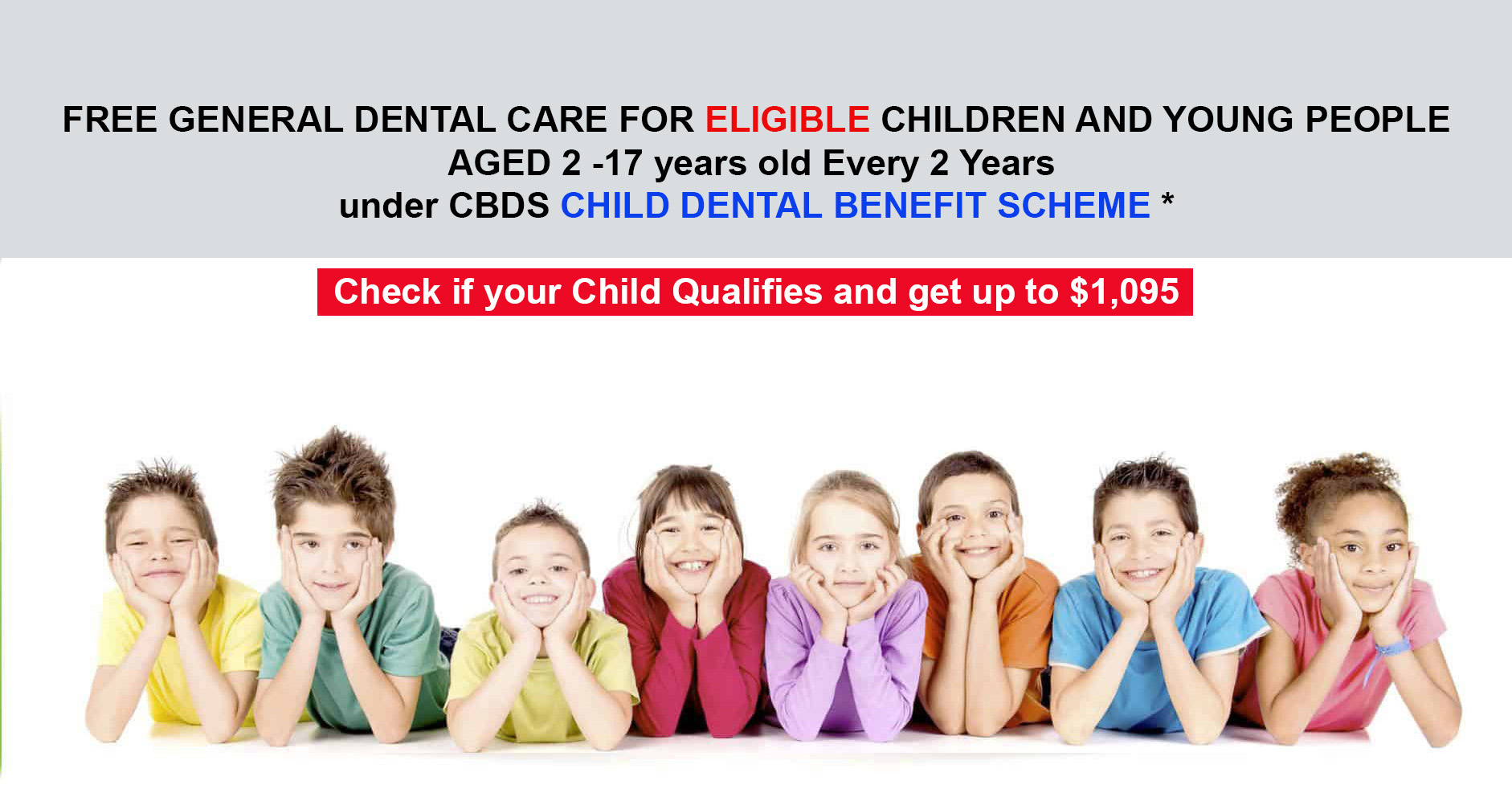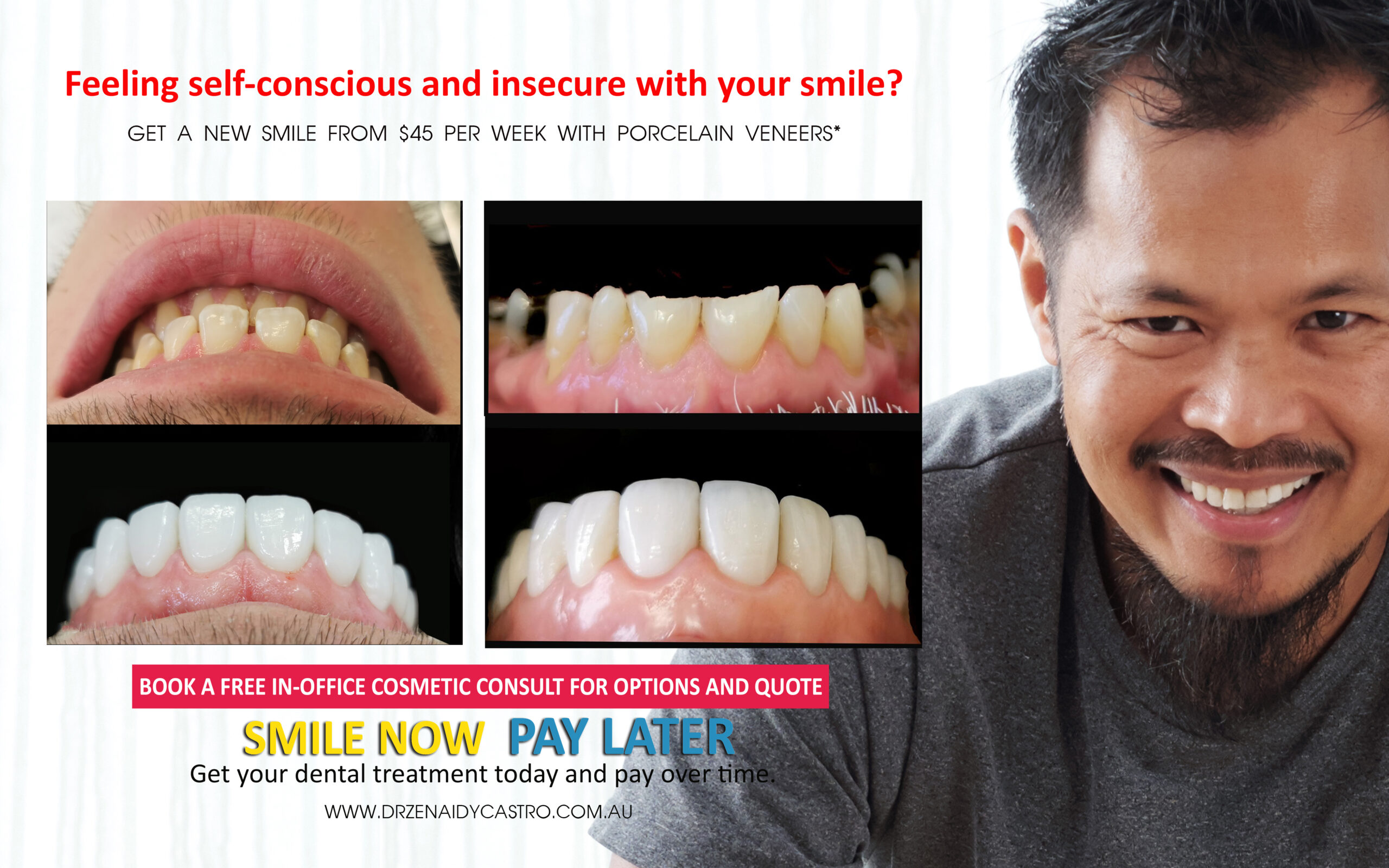

Key Highlights:
✨Early prevention is the key to keeping your child’s teeth healthy and cavity-free throughout their lifetime
✨Simple daily habits and professional treatments can protect your child from painful tooth decay and expensive dental work
✨Primary teeth are crucial for your child’s development, speech, and future oral health—they’re not “just baby teeth”
✨Modern dental techniques like fluoride applications and pit and fissure sealants provide powerful protection against cavities
✨Starting dental visits early helps children develop positive relationships with oral healthcare and prevents dental anxiety
✨Expert pediatric dental care in Melbourne CBD & Noble Park North makes preventing cavities in children easier for busy parents
???? Call Vogue Smiles Melbourne and Noble Park today for a comprehensive general and smile makeover treatment — offering competitive pricing, bundled porcelain veneer specials, interest-free dental plans, and Superannuation access assistance.
REQUEST AN ONLINE PERSONALIZED QUOTE ➤
REQUEST FOR A FREE TELECONSULTATION ➤
As a parent, few things worry you more than seeing your child in pain. When it comes to tooth decay in children, the good news is that cavities are almost entirely preventable with the right knowledge and approach. This comprehensive guide will give you everything you need to protect your child’s smile and set them up for a lifetime of healthy teeth.
Preventing cavities in children isn’t just about avoiding sweets – though that certainly helps. Modern pediatric dentistry offers powerful tools like fluoride applications, pit and fissure sealants, and early intervention strategies that can virtually eliminate your child’s risk of developing tooth decay. The key is understanding what works, when to start, and how to make oral health a positive part of your child’s daily routine.
At our Melbourne CBD & Noble Park North pediatric dental practices, we see hundreds of families every month who are concerned about their children’s oral health. Some parents feel overwhelmed by conflicting advice about fluoride, unsure about when to start dental visits, or worried about their child’s fear of the dentist. This guide addresses all these concerns with practical, evidence-based solutions that real families use successfully every day.
Why Cavity Prevention Matters More Than You Think
Many parents assume that cavities in baby teeth aren’t serious because “they’ll fall out anyway.” This misconception can lead to significant problems for your child’s development and future oral health. Primary teeth serve crucial functions that affect your child’s speech development, nutrition, self-confidence, and the proper positioning of their permanent teeth.
When tooth decay in children goes untreated, it can cause:
- Severe pain and infection: Untreated cavities can lead to abscesses that require emergency treatment
- Speech development issues: Missing or damaged teeth affect how children learn to pronounce sounds correctly
- Nutritional problems: Pain while eating can cause children to avoid healthy foods
- Social and emotional impact: Visible tooth decay can affect a child’s self-esteem and social interactions
- Orthodontic complications: Early loss of primary teeth can cause permanent teeth to erupt improperly
The financial impact is also significant. Treating advanced tooth decay in children often costs thousands of dollars and may require sedation or hospital visits. In contrast, preventing cavities in children through regular care and preventive treatments costs a fraction of this amount while ensuring your child never experiences dental pain.
UNDERSTANDING TOOTH DECAY IN CHILDREN
How Cavities Form in Children’s Teeth
Understanding how tooth decay develops helps you take targeted action to prevent it. Cavities form when bacteria in your child’s mouth feed on sugars and starches from food, producing acids that gradually dissolve tooth enamel. Children are particularly susceptible because their tooth enamel is thinner and softer than adult teeth.
The cavity formation process includes several stages:
- Plaque formation: Bacteria stick to teeth and form a sticky film, especially in hard-to-clean areas
- Acid production: Bacteria convert sugars from food into acids that attack tooth enamel
- Enamel weakening: Repeated acid attacks cause microscopic holes in the tooth surface
- Cavity development: Continued acid exposure enlarges these holes into visible cavities
- Deeper decay: Untreated cavities penetrate deeper layers, potentially reaching the tooth’s nerve
The good news is that this process takes time, and there are multiple opportunities to stop or reverse early decay. Regular dental checkups at our Melbourne CBD & Noble Park North locations can identify problems in the earliest stages, often before any treatment is needed.
Risk Factors That Make Some Children More Vulnerable
While all children can develop cavities, certain factors increase the risk of tooth decay in children. Identifying these risk factors helps you take extra precautions to protect your child’s teeth.
Common risk factors include:
- Frequent snacking: Constant exposure to food keeps acid levels high in the mouth
- Sugary drinks: Juice, sports drinks, and sodas bathe teeth in cavity-causing sugars
- Poor oral hygiene: Inadequate brushing and flossing allows plaque buildup
- Dry mouth: Reduced saliva production, often from medications or mouth breathing
- Deep tooth grooves: Some children naturally have deeper pits and fissures that trap food
- Family history: Genetic factors can affect tooth structure and cavity susceptibility
- Special needs: Physical or developmental challenges that make oral hygiene difficult
If your child has multiple risk factors, don’t panic. Our pediatric dental specialists in Melbourne CBD & Noble Park North can develop customized prevention plans that address your child’s specific needs and dramatically reduce their cavity risk.
ESSENTIAL PREVENTION STRATEGIES FOR PARENTS
Daily Oral Hygiene That Actually Works
Effective daily oral hygiene is the foundation of preventing cavities in children, but many parents struggle with making it happen consistently. The key is establishing routines that are age-appropriate, enjoyable, and thorough enough to remove cavity-causing plaque.
Age-specific oral hygiene guidelines:
- Ages 0-2: Clean gums with a soft cloth, then brush first teeth with a soft-bristled toothbrush and fluoride-free toothpaste
- Ages 2-6: Use a pea-sized amount of fluoride toothpaste, supervise brushing, and help with thorough cleaning
- Ages 6-12: Teach independent brushing technique, introduce flossing, and continue supervision
- Ages 12+: Encourage independent oral hygiene while monitoring consistency and technique
Making oral hygiene enjoyable helps ensure consistency. Try using colorful toothbrushes, fun flavored toothpaste, timers with music, or reward charts to motivate your child. Remember, children need help with brushing until they develop the manual dexterity for thorough cleaning, usually around age 8-10.
Nutrition and Diet for Cavity Prevention
What your child eats and drinks has a direct impact on their cavity risk. Understanding which foods promote tooth decay and which foods protect teeth helps you make informed choices about your child’s diet.
Cavity-promoting foods and drinks to limit:
- Sugary drinks: Juice, soda, sports drinks, and flavored milk create constant acid attacks
- Sticky candies: Gummy bears, fruit snacks, and caramels cling to teeth for hours
- Frequent snacking: Crackers, chips, and other carbohydrates feed cavity-causing bacteria
- Citrus fruits: While healthy, frequent consumption can erode tooth enamel
Tooth-healthy foods to encourage:
- Dairy products: Milk, cheese, and yogurt provide calcium and help neutralize acids
- Crunchy fruits and vegetables: Apples, carrots, and celery help clean teeth naturally
- Water: Helps rinse away food particles and bacteria
- Nuts and seeds: Provide minerals that strengthen tooth enamel
The timing of eating matters too. It’s better for your child to eat sweets during meals rather than as standalone snacks, as increased saliva production during meals helps neutralize acids. Our Melbourne CBD & Noble Park North dental nutritionists can provide personalized dietary guidance for your family.
PROFESSIONAL PREVENTION TREATMENTS
Fluoride Applications: Powerful Cavity Protection
Professional fluoride applications are one of the most effective tools for preventing cavities in children. These treatments provide concentrated fluoride that strengthens tooth enamel and can even reverse early stages of tooth decay.
Benefits of professional fluoride treatments:
- Stronger enamel: Fluoride helps remineralize weakened tooth surfaces
- Cavity reversal: Can stop and reverse early decay before cavities form
- Long-lasting protection: Professional applications provide protection for months
- Safe and painless: Quick, comfortable treatment that children tolerate well
- Cost-effective: Prevents expensive dental treatments later
Professional fluoride applications are typically recommended every 6 months for most children, though children at higher risk for tooth decay may benefit from more frequent treatments. The fluoride is applied as a varnish, gel, or foam that tastes pleasant and takes only minutes to apply.
Pit and Fissure Sealants: Protecting Hard-to-Clean Areas
Pit and fissure sealants are thin, protective coatings applied to the chewing surfaces of back teeth where most cavities in children occur. These areas have deep grooves that are difficult to clean with brushing alone, making them prime locations for tooth decay.
How pit and fissure sealants work:
- Physical barrier: Create a smooth surface that prevents food and bacteria from getting trapped
- Easy cleaning: Make it possible to clean deep grooves effectively with regular brushing
- Long-lasting protection: Can last 5-10 years with proper care
- Painless application: No drilling or anesthesia required
- Highly effective: Reduce cavity risk by up to 80% in sealed teeth
Sealants are most commonly applied to permanent molars as they erupt, typically between ages 6-14. However, baby teeth with deep grooves may also benefit from sealants, especially if your child is at high risk for tooth decay. Our Melbourne CBD & Noble Park North pediatric dentists can evaluate whether sealants are right for your child.
WHEN TO START DENTAL VISITS
The First Dental Visit: Earlier Than You Think
Many parents are surprised to learn that children should have their first dental visit by age 1 or within 6 months of their first tooth appearing. This early start is crucial for preventing cavities in children and establishing positive dental experiences.
Benefits of early dental visits:
- Early problem detection: Identify potential issues before they become serious
- Preventive care: Start fluoride treatments and other preventive measures early
- Parent education: Learn proper home care techniques and dietary guidance
- Positive associations: Help children view dental visits as normal and non-threatening
- Habit formation: Establish regular dental care as a lifelong routine
The first visit is typically brief and focuses on getting your child comfortable with the dental environment. The dentist will gently examine your child’s mouth, discuss home care techniques, and answer any questions you have about preventing tooth decay in children.
Regular Checkup Schedule
After the initial visit, most children should have dental checkups every 6 months. However, children at higher risk for tooth decay may need more frequent visits to maintain optimal oral health.
What happens during regular checkups:
- Comprehensive examination: Check for cavities, gum health, and proper development
- Professional cleaning: Remove plaque and tartar that home care can’t eliminate
- Fluoride treatment: Apply protective fluoride to strengthen teeth
- X-rays when needed: Detect problems between teeth and below the gum line
- Sealant application: Protect new permanent teeth as they erupt
- Home care review: Update brushing techniques and dietary recommendations
Regular visits to our Melbourne CBD & Noble Park North pediatric dental offices allow us to track your child’s development and catch any problems early when they’re easiest and least expensive to treat.
MANAGING DENTAL FEAR IN CHILDREN
Creating Positive Dental Experiences
Dental anxiety can interfere with preventing cavities in children by making them resistant to dental visits and home care. Creating positive experiences from the beginning helps ensure your child will maintain good oral health throughout their life.
Strategies for reducing dental anxiety:
- Start early: Begin dental visits when children are young and more adaptable
- Use positive language: Avoid scary words like “shot,” “drill,” or “hurt”
- Read dental books: Familiarize children with dental visits through age-appropriate stories
- Practice at home: Play “dentist” games to make dental care seem normal and fun
- Reward cooperation: Praise good behavior during and after dental visits
- Choose pediatric specialists: Dentists trained in working with children create more comfortable experiences
At our Melbourne CBD & Noble Park North pediatric dental practices, we specialize in making dental visits comfortable and even enjoyable for children. Our child-friendly environments, gentle techniques, and experienced staff help even the most anxious children feel safe and secure.
What to Do If Your Child Is Afraid
If your child has already developed dental fear, don’t give up. With patience and the right approach, most children can overcome their anxiety and learn to tolerate or even enjoy dental visits.
Techniques for anxious children:
- Tell, show, do: Explain procedures, demonstrate on a doll, then perform on the child
- Distraction techniques: Use music, videos, or conversation to redirect attention
- Breathing exercises: Teach simple relaxation techniques
- Graduated exposure: Start with simple visits and gradually progress to more complex treatments
- Sedation options: Nitrous oxide or other safe sedation methods for highly anxious children
Our pediatric dental specialists are trained in behavior management techniques that help children feel comfortable and confident during dental visits. We work at your child’s pace and never rush or force treatments that cause distress.
WHY PRIMARY TEETH MATTER
Functions of Baby Teeth Beyond Chewing
Many parents underestimate the importance of primary teeth, thinking they don’t need much care since they’ll eventually fall out. This misconception can lead to serious problems that affect your child’s development and future oral health.
Critical functions of primary teeth:
- Speech development: Essential for learning proper pronunciation of sounds and words
- Nutrition: Enable proper chewing for good digestion and healthy eating habits
- Space maintenance: Hold space for permanent teeth to erupt in proper positions
- Facial development: Support normal jaw growth and facial structure
- Self-esteem: Healthy teeth contribute to confident smiles and social interactions
- Learning foundation: Pain-free eating and speaking support classroom learning
Primary teeth remain in your child’s mouth for 6-12 years, making their health crucial for normal childhood development. Preventing cavities in children’s baby teeth is just as important as protecting their permanent teeth.
Long-term Consequences of Neglecting Baby Teeth
When primary teeth are lost early due to tooth decay, the consequences can affect your child for years to come. Understanding these potential problems helps motivate consistent preventive care.
Problems from early tooth loss:
- Orthodontic issues: Permanent teeth may erupt crooked or crowded
- Speech problems: May require speech therapy to correct pronunciation issues
- Eating difficulties: Can lead to poor nutrition and digestive problems
- Social challenges: Missing teeth can affect self-confidence and peer relationships
- Expensive treatments: May require space maintainers, orthodontics, or other interventions
Our Melbourne CBD & Noble Park North pediatric dentists emphasize primary tooth care because we’ve seen how proper prevention can avoid these complications entirely. Investing in your child’s baby teeth pays dividends in their long-term oral health and development.
TREATMENT OPTIONS FOR TOOTH DECAY
Early Intervention and Remineralization
When caught early, tooth decay in children can often be stopped or even reversed without traditional drilling and filling. These conservative treatments are more comfortable for children and preserve more natural tooth structure.
Early intervention options include:
- Fluoride treatments: High-concentration fluoride can remineralize early decay
- Silver diamine fluoride: Stops decay progression and prevents further damage
- Dietary changes: Reducing sugar exposure allows natural remineralization
- Improved oral hygiene: Better cleaning can halt decay progression
- Prescription toothpaste: Higher fluoride concentrations for home use
These treatments work best when decay is detected early, emphasizing the importance of regular dental checkups. Our Melbourne CBD & Noble Park North dental teams use advanced diagnostic tools to identify the earliest signs of decay when conservative treatments are most effective.
Restorative Treatments for Baby Teeth
When cavities in primary teeth are too advanced for remineralization, restorative treatments can save the tooth and prevent pain or infection. Modern pediatric dentistry offers several options that are comfortable and effective for young patients.
Treatment options for baby teeth:
- Composite fillings: Tooth-colored materials that blend naturally with teeth
- Stainless steel crowns: Durable protection for severely damaged molars
- Pulp therapy: Treats infected tooth nerves while preserving the tooth
- Extractions: Only when teeth cannot be saved, followed by space maintenance
The goal is always to preserve primary teeth until they naturally fall out. Our pediatric specialists use gentle techniques and, when necessary, safe sedation options to ensure your child’s comfort during treatment.
Treating Permanent Teeth
Permanent teeth require different treatment considerations since they need to last a lifetime. Early intervention is even more critical for permanent teeth, as any treatment will need to be maintained and potentially replaced over time.
Treatment approaches for permanent teeth:
- Conservative fillings: Preserve as much natural tooth structure as possible
- Preventive restorations: Combine treatment with sealants for additional protection
- Root canal therapy: Save severely damaged teeth that would otherwise require extraction
- Crowns: Protect and restore heavily damaged teeth
The best treatment for permanent teeth is prevention. Our Melbourne CBD & Noble Park North offices focus heavily on preventive care to help your child’s permanent teeth remain healthy and cavity-free throughout their lifetime.
FREQUENTLY ASKED QUESTIONS
When should my child have their first dental visit?
Children should have their first dental visit by age 1 or within 6 months of their first tooth appearing. Early visits help establish good oral health habits, allow for early problem detection, and create positive associations with dental care from the beginning.
Are cavities in baby teeth really that serious?
Yes, cavities in primary teeth can cause serious problems including pain, infection, speech development issues, nutritional problems, and orthodontic complications. Baby teeth hold space for permanent teeth and are essential for normal childhood development and should be protected.
What are pit and fissure sealants and do children need them?
Pit and fissure sealants are thin protective coatings applied to the chewing surfaces of back teeth. They prevent food and bacteria from getting trapped in deep grooves, reducing cavity risk by up to 80% in sealed teeth. Most children benefit from sealants on their permanent molars.
Is fluoride safe for children?
Yes, fluoride is safe and highly effective for preventing cavities when used appropriately. Professional fluoride treatments and fluoride toothpaste in age-appropriate amounts provide excellent protection against tooth decay. Your pediatric dentist can recommend the right fluoride program for your child’s needs.
How can I help my child who is afraid of the dentist?
Start dental visits early, use positive

Start Strong – Give Your Child a Lifetime of Healthy Smiles
Your child’s smile deserves the best start. Regular dental visits from an early age not only protect against cavities but also build lifelong confidence and positive habits. At Vogue Smiles Melbourne and Noble Park, we create a gentle, welcoming experience for kids and peace of mind for parents. Book your child’s first or next dental visit today—because prevention is the best gift you can give their smile.
At Vogue Smiles Melbourne, we see your smile as a lifelong investment—and we’re here to make it healthy, confident, and truly unforgettable. Whether you’re after a simple check-up or a complete smile makeover, our caring team in Melbourne CBD & Noble Park North is here to help. Don’t wait until there is a pain or insecurity grows.
Your Child’s Healthier Smile Starts Here – Book a Consultation
???? Call (03) 9629 7664 | 0413 014 122
REQUEST AN ONLINE PERSONALIZED QUOTE ➤
REQUEST FOR A FREE TELECONSULTATION ➤


Disclaimer:
The information on this website is for information purposes only. Is not a substitute for a proper professional care and advice. Each patient’s outcomes, risks, potential complications, and recovery differ. Any dental procedure, minor or major, carries risks, some minor and some serious. Before and after images seen on our Social Media and website pages are our actual patient and have been published/posted with our patients’ permission. All of our patients photos are subject to Copyrights protection. We are strong believers in responsible aesthetics. Every cosmetic, medical, or dental procedure comes with its own set of risks and benefits. Cosmetic Dentistry results will vary from patient to patient. Call our office and book for an actual in-office consultation for us to assess if you are a good candidate for a particular treatment. All of our Specials and packages posted on this site are subject to terms, conditions and availability. The exact fee for a particular cosmetic procedure will be determined after a preliminary assessment distinguishing your unique personal needs and the type of work needed. The prices mentioned on any of our website as well as any mentioned payment plan by a third party source, are just a guide and is subject to change. Call the third party financing providers or visit their website for more info. Please call the office on 9629-7664 for further queries or clarification.




